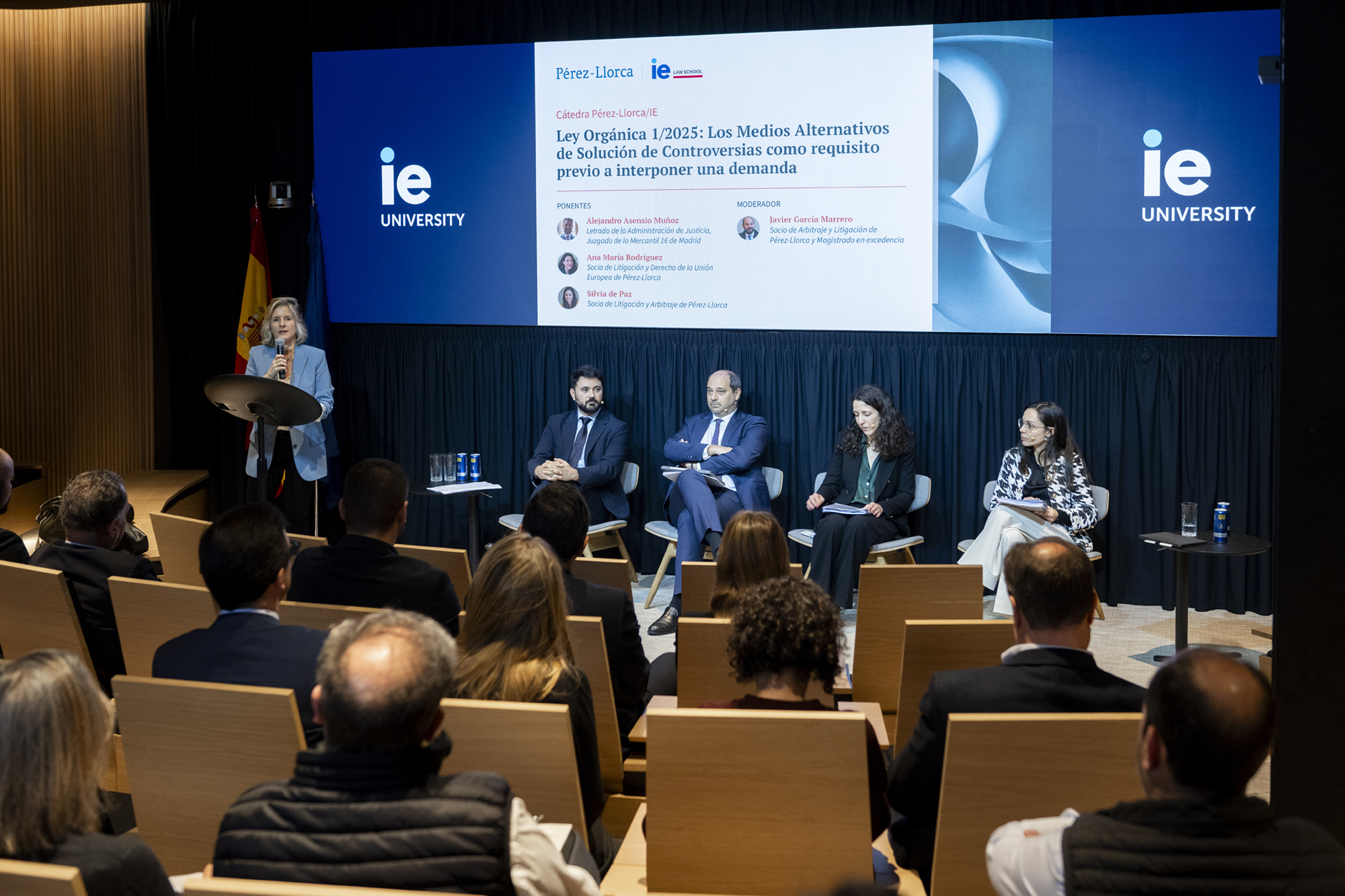Madrid, March 2025 – Pérez-Llorca and IE Law School held a new session of their Chair on Commercial Law, focusing on the impact of Organic Law 1/2025 and its most significant procedural measure: the requirement to resort to the so-called Alternative Dispute Resolution (ADR) as a procedural condition for filing civil action.
The event was moderated by Javier García Marrero, a Litigation and Arbitration partner at Pérez-Llorca, and was attended by Alejandro Asensio Muñoz, a representative of the Justice System of Commercial Court No. 16 of Madrid; Ana María Rodríguez Conde, a Litigation and European Union Law partner at Pérez-Llorca; and Silvia de Paz Pérez, a Litigation and Arbitration partner at Pérez-Llorca.
Organic Law 1/2025 is the third of the so-called “Efficiency Laws” promoted by the Executive to modernise the judicial system and reorganise the functioning of the courts. In the words of García Marrero, “it is probably the most important civil reform of the 21st century.”
As of 3 April, as a general rule, ADR is a prerequisite for initiating civil or commercial court proceedings. Organic Law 1/2025 provides that failure to comply with this requirement will result in the claim being rejected as inadmissible.
During the event, the speakers addressed key issues such as the types of ADR provided for by the law and the possibility of incorporating other alternative means; the practical implications for companies and lawyers; the impact on the statute of limitations and expiration periods; and the possibility of remedying procedural errors. In this context, Asensio Muñoz expressed some doubts about its effectiveness: “I am somewhat sceptical that this is going to work and that this is the mechanism to make the courts work better,” he said. He added: “The key to ADR is going to be the costs.”
For his part, Rodríguez Conde warned about the law’s approach to access to justice: “Depending on how different courts apply this law, ADRs may mean that equal treatment in the right of access to justice is not granted, which is concerning.”. He also highlighted aspects such as the remuneration of third parties involved in the pre-negotiation phase: “The law does provide that you pay your lawyer, but it says nothing about what happens if you go to a third party. It only states that, if you opt for the opinion of a neutral expert in the matter, in that case, it will be agreed between the parties. We will have to wait and see what fees are declared to be recoverable in costs because Article 241 of the LEC has not been modified.”
De Paz Pérez also stressed the flexible nature of the new regulatory framework: “My opinion from a comprehensive reading of the law is that it is an open list. What you have to prove is that you have tried to negotiate. In fact, the law itself allows you to negotiate between the parties through their lawyers.”
Among the most debated points were the need to guarantee the confidentiality of negotiations, and the possibility of declaring this new procedural requirement unconstitutional. On this last point, de Paz Pérez pointed out: “The General Council of the Judiciary carried out an initial analysis of the rule in the preliminary draft report on potential unconstitutionality and in a comparative law study. In both cases it concluded that there was no cause for unconstitutionality. However, it did note a problem of fitness for purpose, considering that the law was too broad in its scope of application.” To which Asensio Muñoz added: “I think what is critical is the nature of ADR, specifically the fact that it is obligatory.”
